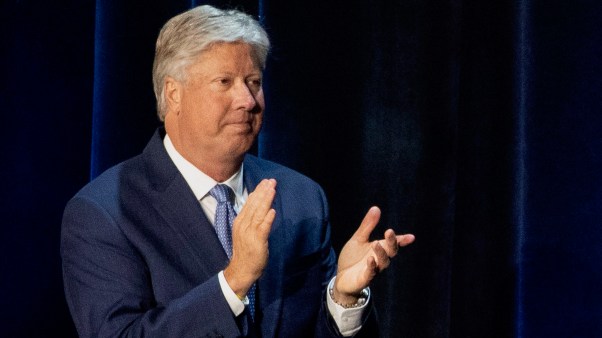The very stars God has numbered and named are these days a “rare commodity,” writes Cort Gatliff in “God’s Promises Are Clearest When We Turn Out the Lights.” Light pollution affects almost everyone on the planet in some way, denying us a chance to reflect on God’s glory.
Several readers shared their passion about this topic with us. Michael A. Covington of Georgia, author of Astrophotography for the Amateur, writes, “Thank you for speaking out against light pollution. Hiding the stars with wasteful outdoor lighting shows disrespect for the majesty of God’s creation; can harm wildlife; and wastes electricity and money.” His encouragement to all of us: “Light the ground, not the sky.”
Another message shared a more personal connection. “For over 40 years I’ve gone on late night walks with my star-gazing husband and paid minimal attention to the constellations, barely tolerating the persistent quizzing about the stars’ names and locations,” said Debra Wiens. Her husband is Douglas Wiens, professor of Earth, environmental and planetary sciences at Washington University in St. Louis and a Wheaton College graduate. With this article, Wiens says, “I can now begin to appreciate the role of the heavens in developing humanity’s awe, wonder, and worship of the Creator.”
Alexandra Mellen Conversations editor
Salvation Army Kettles Collect Fewer Coins
Reading this makes me feel bad for having to cut back on my donations. Prices on everything have gone up so much that those of us on fixed incomes have to cut back on our own meals. Social Security has only gone up a little while prices of everything have skyrocketed.
Donna Cooley Vancouver, WA
We at the Salvation Army are not immune to this [downward] trend in giving, just as we are not immune to criticism. We must keep in mind the elements of decreased foot traffic, inflation, economic uncertainty, and the simple fact that people now carry less cash. Above all this, however, is one factor not mentioned in your piece: a decline in the number of volunteers. Our research shows that the average daily amount contributed per kettle has actually increased over the years. We simply need more folks to step forward and give a little time to help. The Salvation Army is also offering digital giving at red kettles and providing more online options. Indeed, when we include those efforts, total fundraising is still up from prepandemic levels. Through it all, we remain committed to our work.
Kenneth G. Hodder, National Commander Alexandria, VA
Why Do We Want AI to Interpret Scripture?
To Schiess’s excellent argument, I would add that Scripture instructs us to meditate on God’s Word. While AI can be a useful tool, it will never replace this meditative process by a human made in the image of a supernatural God and indwelt by the Holy Spirit.
Sandi Arenburg Round Rock, TX
Frozen Embryos Are the New Orphan Crisis
I am the mother of two genetic siblings my husband and I adopted in a group of embryos. We adopted a second batch from a cousin of mine, and a clinic lost two of the embryos. No one knows what happened. There were no consequences to the clinic, either legal or fiscal. My cousin tried to find attorneys to represent us, and no one would. An unintended consequence of the government not funding stem cell research is that there is no oversight for the fertility industry. The only stats clinics report are successful pregnancy outcomes. They are not required to report lost embryos, accidental thawing or destruction of embryos, or transferring to the wrong woman. A New York Times article also addresses this topic. We’ve been in regular contact with its subject, Elaine Meyer, after finding ourselves in a similar situation.
Amy Houghtaling South Bend, IN
The Faith and Work Movement Is Leaving Blue-Collar Workers Behind
I’m one of those “creative class,” “highly educated evangelicals.” I am an Asian Australian and very much urbanized. My circle of friends are all tertiary-degree educated. Then I married a blue-collar unbeliever. I got exposed to the world I have not known before. My husband really tried to go to church, but he felt out of place. It was an all-Australian church, but no one looks like him, no one dressed like him. And he cannot catch up with the readings or theological concepts shared and talked about. So he gave up, concluded that he doesn’t belong. This faith is not for him. How do we serve and cater for this group of people? I have not been in a community of blue-collar Christians. And that saddens me.
Debbie Dameria Melbourne, Australia
I Studied Christianity with the Hope of Debunking It
I am a 16-year-old Christian. I found it interesting that the thing Julie Hannah latched onto about Jesus was how real and human he was opposed to myths. Jesus was the exception to ancient heroes and demigods because he came into the world as God but is portrayed like a man. In every other epic, the hero had to be far away from the everyman so he could be looked up to. It is a testament to the gospel that a new religion managed to grow under persecution based on the man who is a God we should worship and a real, emotional person.
Gibson Walker Dallas, TX










